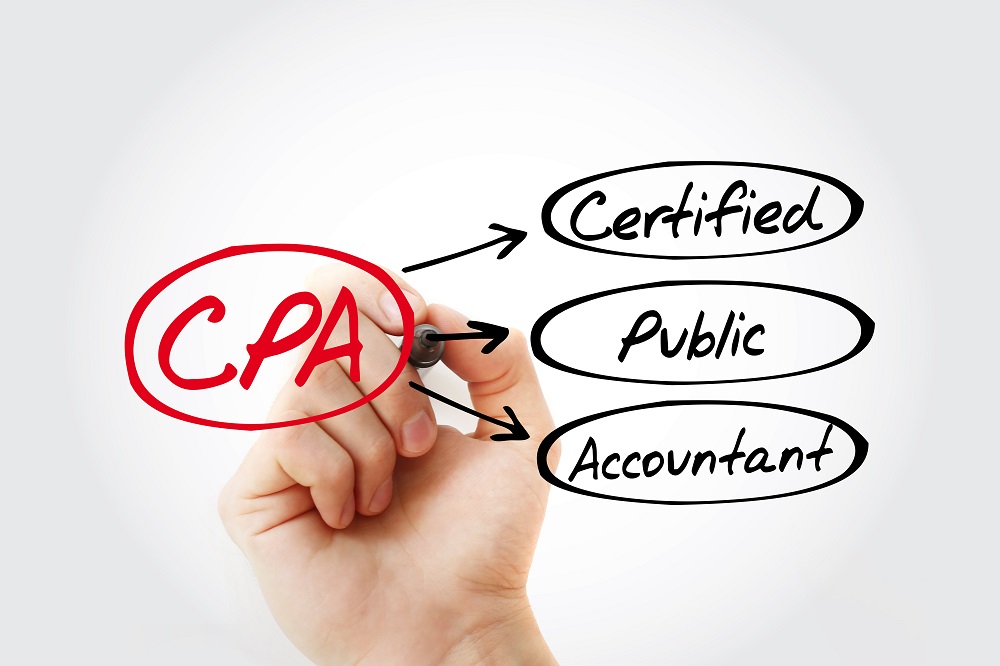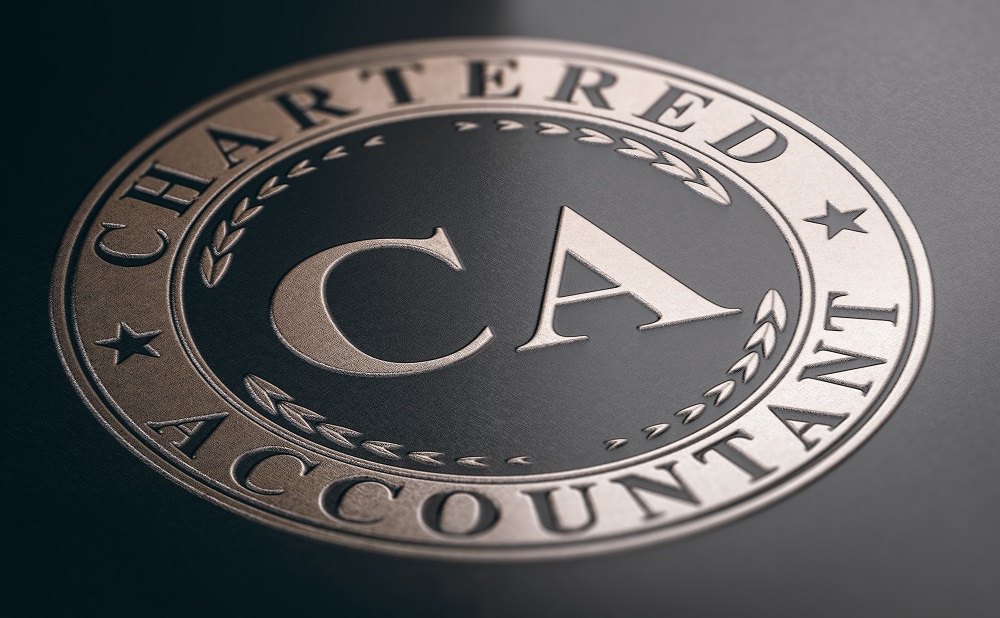Accounting itself as a general field of work is essentially the occupation of financial analysis and manipulation in accordance with the wishes of executives and other individuals that possess any significant number of assets.
However, an accountant is such a member of said field, who perform services for entities and individuals such as financial management, tax return advising, auditing and financial analysis. Regardless of the type of accountant and their particular specialty, it is likely that they are capable of these basic tasks, as they are taught to all accountants during their formal education.
The primary difference when comparing an accountant to a chartered accountant is that of their education and relative experience, with chartered accountants possessing considerably more qualifications and a higher level of educational attainment than that of most ordinary accountants.
What is an Accountant?

An accountant is an individual who functions as a financial expert by providing their services in the capacity of accountancy. While accountants may be qualified by passing certain types of certification exams, there are many accountants who do not undergo this certification testing and thus are only considered accountants- as opposed to certified public accountants, chartered accountants, or chartered certified accountants.
This distinction means that ordinary accountants without proper certification do not possess the legal statute allowing them to perform the duties that would otherwise be beneath the purview of a certified accountant.
Among these duties is the certification of an entity’s financial statements and disclosures as well as the ability to act in an advisory capacity in the event of a tax audit from the Internal Revenue Service, of which uncertified accountants are barred from doing.
Uncertified accountants may still work in the financial sector however, albeit with a reduced working capacity and some legal hamstringing on the actions they may take. Most often, these accountants may work under a suitably qualified supervising accountant or work in an independent capacity within the limits of their legal ability.
What is a Chartered Accountant?
A chartered accountant, in comparison to ordinary accountants, are certified and educated beyond the level of said ordinary accountants and as such are often bestowed with legal statute to perform financial actions that other individuals working in the financial sector cannot otherwise do.
Chartered accountants may be found throughout all walks of corporate or business life, oftentimes kept as a salaried employee or working as an individual contractor in order to provide their services to corporate entities or individuals that may need it.
Among the duties of a chartered accountant are that of auditing, tax advising and filing, financial management and even aggressive market analysis in certain accounting firms.
The majority of certified and legally recognized chartered accountants are often belonging to an institute primarily focused on chartered accountants themselves, of which usually requires them to be constantly undertaking a level of continued professional growth or educational advancement, encouraging them to keep apprised of the financial developments in their part of the world.
Does an Accountant Have to be Chartered?
As the professional title of accountant is not one of legally binding function, practically any person is capable of calling themselves an accountant with no legal repercussions.
However, the title of chartered accountant or similar titles such as CPAs are in fact protected by law, preventing individuals without certain educational backgrounds and certifications from referring to themselves as such.
By extension, this means that accountants do not need to be chartered or to become chartered accountants in order to call themselves an accountant. This fact may be therefore used by corporations or entities to discern the appropriate level of help they may require from an independent contractor or potential employee.
As such, accountants that have not been chartered may either work beneath a chartered accountant or similar certified financial professional in order to facilitate and aid with their duties or may also act as an independent contractor accountant, though they will not have the same privileges and legal rights as a chartered accountant.
What Does a Chartered Accountant Do?
The role of a chartered accountant is both a prestigious and wide reaching one, wherein the chartered accountant may be responsible for a variety of financial tasks and informational analysis based around the business of their employer or client.
However, the financial sector is a broad one, and as such chartered accountants may be required to take on more specific roles depending on the particular area of finance and accounting they have chosen to specialize in.
For example, a chartered accountant working under the budget and payroll section of a company may be required to submit invoices to clients as well as act as a middle man or negotiator with suppliers or independent contractors.
Another role they may be required to fulfill is in the case of working in a tax specializing company or firm, wherein they will likely act in an advisory role to individuals and corporations concerning the sort of tax planning they must undertake.
What Does an Accountant Do?
An accountant, on the other hand, possesses responsibilities that are not as entrenched or far-reaching as that of a chartered accountant, so long as we are referring to accountants that remain uncertified. Regardless, however, accountants are also responsible for interpreting and keeping financial information pertaining to their client, whether it be a corporate entity or a single individual.
Accountants may act beneath a firm or as independent contractors wherein they may perform a limited set of duties similar to that of other uncertified financial professionals. These duties entail tasks such as checking financial documents and statements for discrepancies or errors pertaining to the internal finances of the client, preparing said financial documents and reports, acting as a tax preparer but only advising a client on taxes in a limited capacity as well as conducting internal or aggressive financial assessments.
Accountants of the uncertified kind often act as a supportive role beneath that of other certified finance professionals, such as CPAs or chartered accountants, wherein they may be a part of a team or department that conducts a certain subset of financial tasks for a limited period of time or for a specific client.
Are CPAs the Same as Chartered Accountants?

The term CPA refers to a certified public accountant, otherwise known as an accountant who has managed to pass the certification exam to become a licensed financial professional, often considered a prestigious occupation that requires at least one year of experience and some time in a collegiate educational institution.
Chartered accountants are much the same wherein they have attained a level of professional certification otherwise not available to other members of the financial sector, allowing them to perform duties that these professionals without the prospective certification could not.
However, the main difference found between that of a CPA and that of a chartered accountant is not, in fact, the level of educational attainment or their qualifications but in fact the country of which they have achieved their professional certification.
The term CPA or certified public accountant is a legally protected term bestowed only to those who pass the appropriate certification exam in the United States, while the title chartered accountant applies to certified members of the accounting sector in most other countries excluding the United States.
Fortunately, CPAs, if qualified, may function and work in their accounting capacity outside of the United States, depending on the particular laws between their destination country and the US. This is also true in reverse, wherein chartered accountants may act in their full capacity should they choose to work in the United States, though certain laws may complicate this.
Why are Chartered Accountants Only Found Outside of the United States?
The reasoning behind why the term chartered accountant is not normally found within the United States is because they are instead referred to by the title of CPA, so long as the appropriate certification exam has been passed in one of the constituent states of the US.
This is because the term CPA, outside of the United States, refers to a multitude of differing roles pertaining to the financial sector, oftentimes ending in confusion depending on the particular country or area in question.
For example, countries such as Canada use the job title CPA in order to refer to chartered professional accountants, a distinction that separates these Canadian chartered professional accountants from that of the CPAs found in the United States, sometimes resulting in miscommunication when international accounting firms and overseas clients are brought into a transaction.
What is Different Between the Education of an Accountant in Comparison to a Chartered Accountant?
Though both accountants and chartered accountants may act as financial professionals within their sector, the occupational capacity of an uncertified accountant is much less than that of a chartered accountant. This distinction has been legally decided not without reason, as chartered accountants generally must qualify for their job title through many rigorous means depending on the particular country of which they are choosing to work in.
In countries such as Canada, for example, the prospective chartered accountant candidate must complete an undergraduate degree from a collegiate education institution that is pertaining in some way to finance and business.
This is unlike the requirements of other countries, wherein all that is required is some form of bachelor’s degree from a collegiate institution, with no requirement as to the specialty of said bachelor’s degree. This is far unlike the requirements to become an accountant in the United States, as it is entirely possible to become an uncertified accountant without any sort of formal education apart from that of a high school degree.
However, accountants that wish to become certified as a CPA within the United States or as another form of higher qualified financial professional in other parts of the world, it is suggested that they at the least possess a bachelor’s degree in accounting or other finance related fields so as to prove their qualifications and allow them to work unhindered.
Why Can Anyone Call Themselves an Accountant?
In the vast majority of countries, the term accountant is not a legally protected term or job title, and as such referring to yourself as such comes with no repercussions, legal or otherwise.
This is of vital importance in the case of corporate entities or individuals with valuable assets, as inexperienced accountants without certifications may provide a poorer service and lower quality advice, potentially costing the entity or individual significant amounts of money in tax penalties or oversight losses.
However, one benefit to hiring uncertified accountants is the often lower prices at which they offer their services.
While the general function of an uncertified accountant is hamstrung in comparison to that of a CPA or chartered accountant, for example, the fact that uncertified accountants do not possess significant qualifications or certifications makes them an excellent budget choice for small matters that do not require significant expertise to perform.
It is entirely possible to receive the best of both worlds by becoming a client for a large accounting firm, wherein uncertified accountants may be working beneath a more qualified financial professional whom is acting in a supervisory capacity, allowing you to receive lowered prices with the insurance of a CPA or chartered accountant acting as an error stop gap.
References
1. Unknown Author. (N.D.)”Chartered Accountants Worldwide”. www.icaew.com.
2. Friedman, A. L., & Lyne, S. R. (2001). The beancounter stereotype: towards a general model of stereotype generation. Critical perspectives on accounting, 12(4), 423-451.
3. Perks, R.W.(1993): Accounting and Society. Chapman & Hall (London); ISBN 0-412-47330-5. p.16

